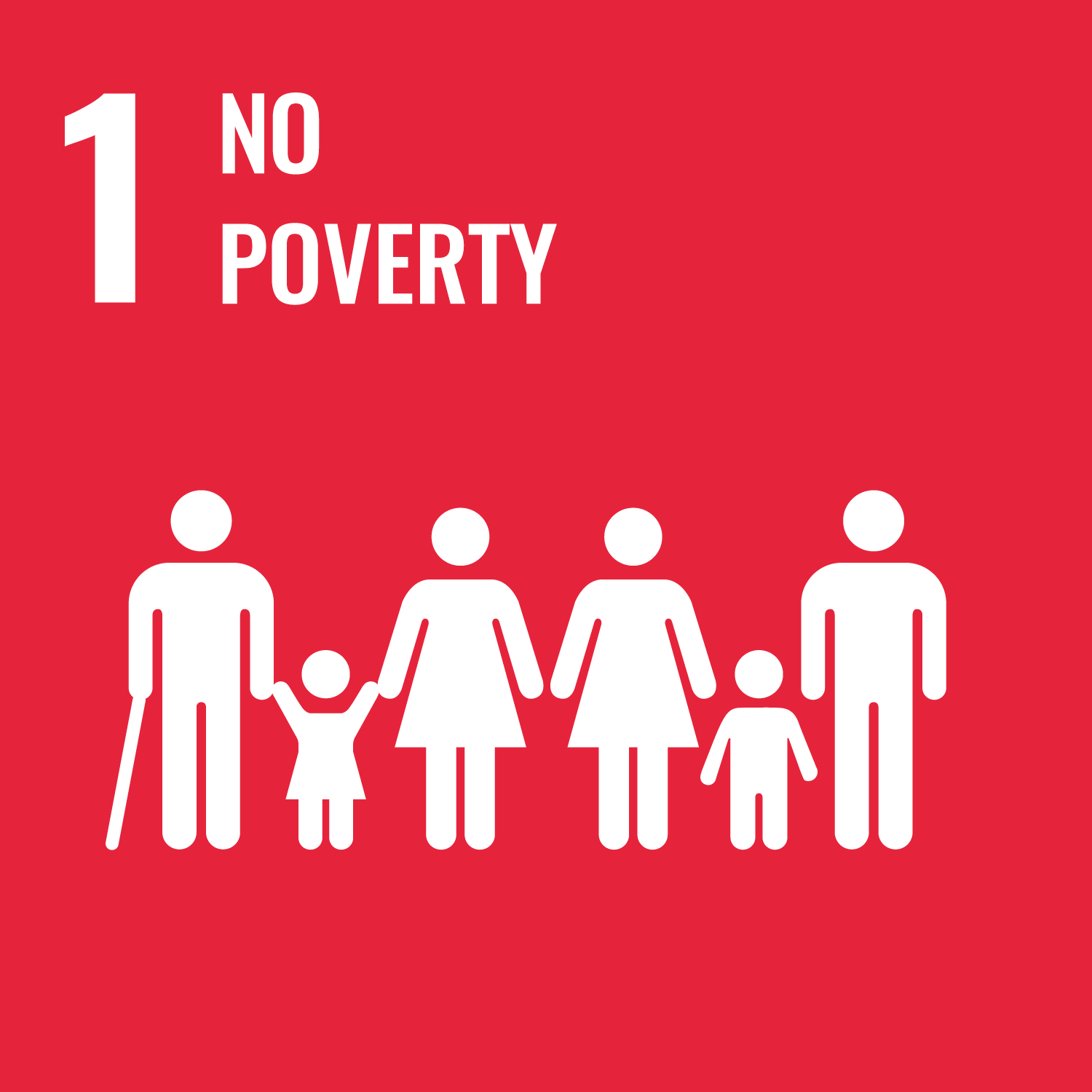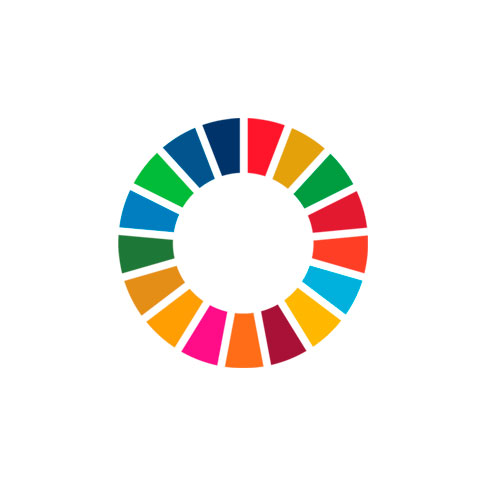Sustainable Development Goals
In 2015, the UN approved the 2030 Agenda for Sustainable Development, an opportunity for countries and their societies to embark on a new path to improve everyone’s lives, leaving no one behind. The Agenda has 17 Sustainable Development Goals, which range from the elimination of poverty to the fight against climate change, education, equality for women, the defense of the environment or the design of our cities.
1 | End of poverty
More than 10% of the world’s population lives in extreme poverty and cannot meet the most fundamental needs: food, health, education, access to clean water and sanitation. Universities must be able to demonstrate how they help to reduce poverty in their communities by offering people from disadvantaged backgrounds a quality education.
2 | Zero hunger
The ability to feed the world is a key element of sustainable development. Universities must be able to demonstrate how they contribute to ending poverty, achieving food security and better nutrition and promoting sustainable agriculture.
3 | Health & Wellness
Ensuring a healthy life and promoting well-being at any age is essential for sustainable development. There is an urgent need to eradicate a wide variety of diseases and address many different emerging and persistent health problems. Universities should actively collaborate in improving the health of their community members and in improving public health.
4 | Quality education
Education is a key way to end inequalities, especially those of a multigenerational nature. In addition to improving quality of life, the access to inclusive education can help to equip local people with the tools to develop innovative, applicable solutions to the world’s biggest problems. Universities should support early and lifelong learning by ensuring equal access to quality education.
5 | Gender equality
Women and girls continue to experience discrimination and violence in all parts of the world. Gender equality is a fundamental human right and the foundation of a peaceful, prosperous and sustainable world. Universities must promote women’s access to the studies they offer, especially those in which it has been shown that there is a gender gap, and they must support their academic and professional development.
6 | Clean water and sanitation
7 | Affordable and clean energy
8 | Decent work and economic growth
9 | Industry, innovation and infrastructure
10 | Reduction of inequalities
Equality must underpin all aspects of sustainability if the SDG targets are to be met. Universities must manage appropriately to reduce economic and health inequalities both nationally and internationally.
11 | Sustainable cities and communities
Cities and communities must be sustainable. More and more of the world’s population lives in urban centers, and this is often also the place where our universities are located. Cities can be places of great innovation and opportunity, but they can also harbor great poverty and inequality. The interaction between universities and their communities, urban and rural, must be positive and able to last through different generations.
Universities act as custodians of the environmental heritage in their communities; a sustainable community must have access to its history and culture to thrive.
12 | Responsible production and consumption
Much of the world economy is based on producing things for consumption which drives industry. If we want the world to develop sustainably, we must understand how to be more responsible at both ends of this cycle. For this, universities must take steps towards an efficient use of resources and the minimization of waste.
13 | Climate action
Climate change is affecting all countries on all continents. It is disrupting national economies and affecting different lives. Weather systems are changing, sea levels are rising, and weather events are becoming more extreme. The universities must carry out activities for climate action, in the case of the ULE these initiatives are promoted from the green office. These initiatives are aimed at introducing climate change as a primary issue in the policies, strategies and plans of countries, companies and civil society, improving the response.
14 | Submarine life
The ocean powers the world systems that make Earth a livable place for humans. Our rain, drinking water, weather, climate, coastlines, much of our food, and even the oxygen in the air we breathe are provided and regulated by the sea. Universities must care for life below the sea by carefully managing this essential global resource as it is key to a sustainable future. Marine and coastal ecosystems must be protected, reducing marine pollution and ocean acidification, ending unsustainable and illegal fishing practices, promoting scientific research in marine technology, fostering the growth of developing island states, and artisanal fishermen and promote and reinforce international law relating to oceans and seas.
15 | Life of terrestrial ecosystems
16 | Peace, justice and solid institutions
Peace and justice go hand in hand, and are absolutely vital for equity between people and countries. To support this, we need our institutions to be strong enough to focus on achieving the SDGs. It can range from individual justice – eradicating modern slavery and human trafficking – to ensuring that our countries have the evidence base necessary to react appropriately to the crisis. Universities can support and be strong institutions in their countries and promote peace and justice.
17 | Alliances to achieve the objectives
Sustainable development is the responsibility of all sectors of society that have to be linked to each other in order to achieve the objectives. Universities must support the achievement of the different SDGs through collaboration with other countries, the promotion of good practices and the publication of data and evidence…


















